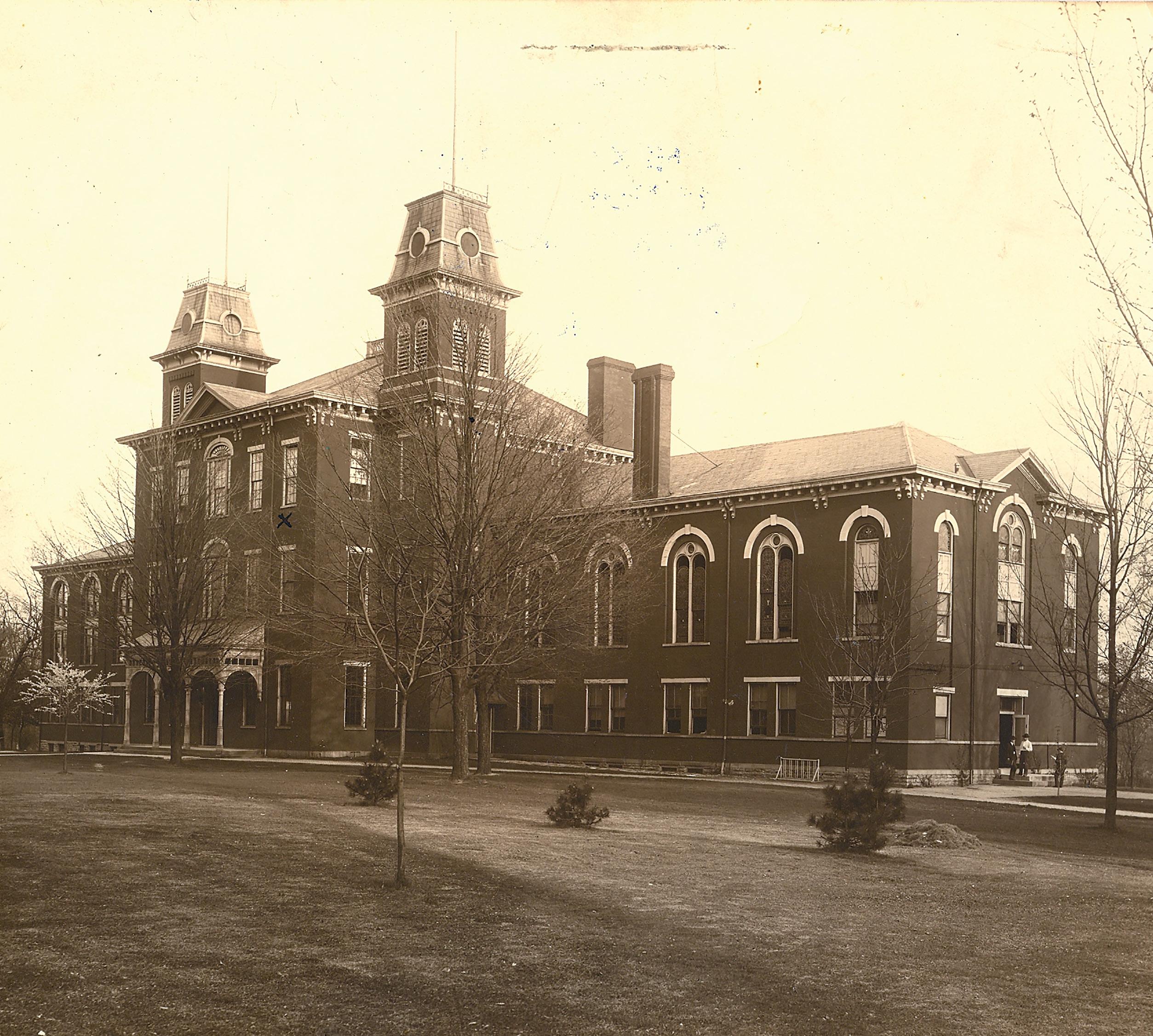
13 minute read
Expanding Our Mission
DYLAN TINZ,
CHAPMAN ’18 ORANGE COUNTY, CA EPSILON SIGMA CHAPTER PRESIDENT
Advertisement
“Where to even start? It was a tough year for everybody. I don’t think any chapter had it easy,” said Dylan Tinz, Chapman ‘18, the Epsilon Sigma President.
Along with the rest of the country, Tinz and the Epsilon Sigma chapter brothers faced massive uncertainties last spring. “In March 2020 we were all sent home,” Tinz said. “We had to cancel everything, we lost some of our down payments. Initially it was very discouraging. We just told brothers that we’re operating on a very low level.” They faced big, long-term problems like recruitment, retention, and finances. But Epsilon Sigma wasn’t down for long. Shortly after being sent home, the chapter adapted to life virtually. They hosted Call of Duty tournaments, Zoom hangouts – they even rallied the entire chapter to submit videos for a Chapman dance contest. “We wanted to give guys the same experience they would have had during a normal semester,” Tinz explained. Now that a return to normalcy is on the horizon, Epsilon Sigma is looking forward to the future. “It’s been a long year and very difficult, but we’re ready to come back on top,” Tinz said. “Our last President Cameron Graylee did a really good job at keeping the chapter alive,” Tinz said. Now as sitting President himself, Tinz is ready to lead. “Last term we focused on survival, now we’re trying to adapt and grow.”
H E R E ’ S T O A N O T H E R 1 1 5 Y E A R S


H E R E ’ S T O A N O T H E R 1 1 5 Y E A R S D O N A T E T O T H E B R O T H E R H O O D F U N D T O D A Y

S C A N H E R E
S C A N H E R E







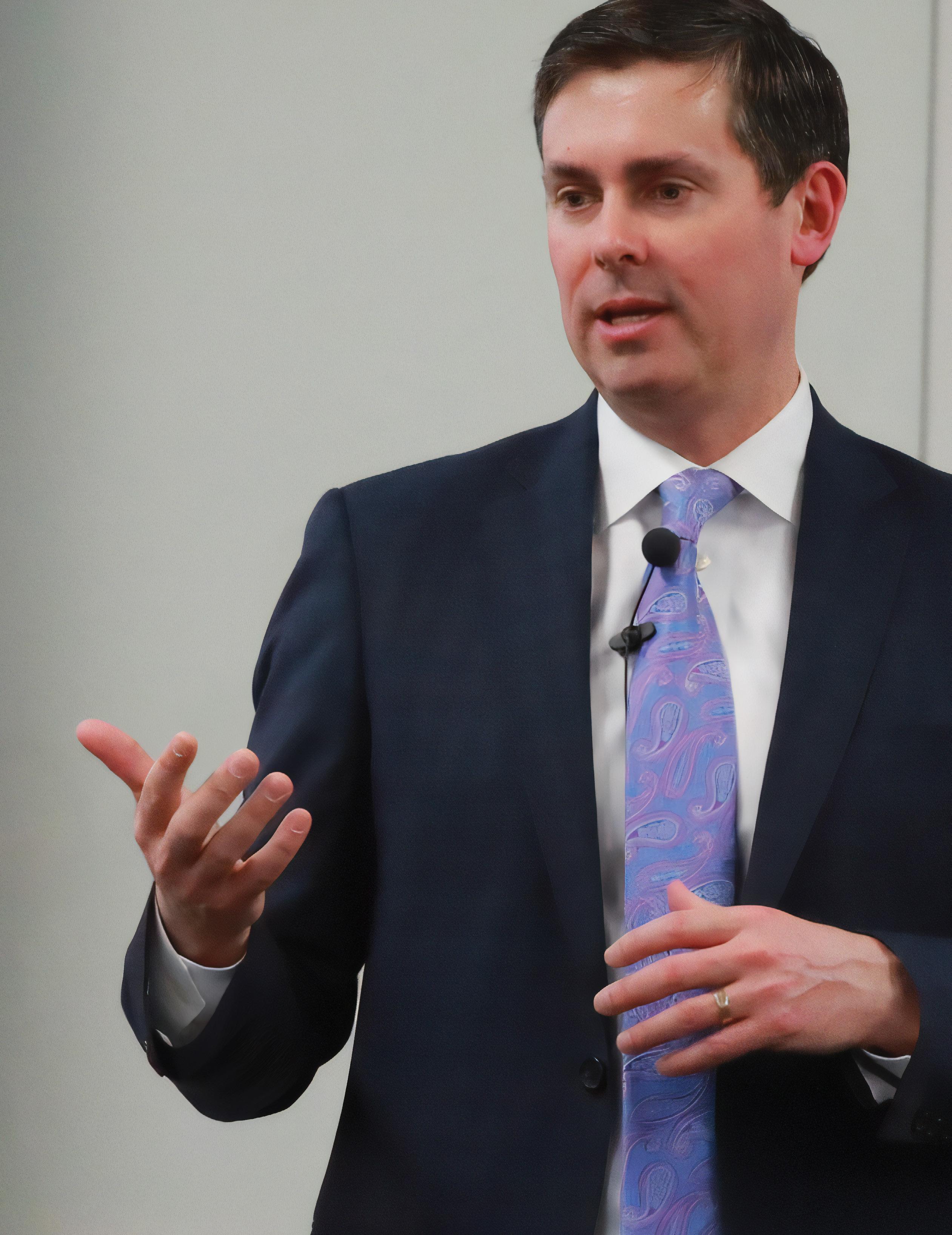
DAVID RICKS, PURDUE ’86 INDIANAPOLIS, IN ELI LILLY CEO & CHAIRMAN
Eli Lilly CEO David Ricks, Purdue ’86, has been instrumental in facilitating the distribution of a COVID-19 treatment across the country. 100,000 doses of Eli Lilly’s neutralizing antibodies have been purchased by the U.S government for distribution across the country. The “combination therapy” drugs bamlanivimab and etesevimab have been successful in treating patients with mild to moderate cases of COVID-19. The U.S. government has an option of purchasing an additional 1.1 million doses before November 2021.
“Every day, thousands of Americans are diagnosed with COVID-19, with many at high risk of progressing to more severe diseases. In our clinical trials, Lilly’s neutralizing antibody therapies significantly reduced the risk of hospitalization and death,” said Ricks in a press release. “The NIH recommendation provides additional guidance to clinicians treating high-risk patients with COVID-19, who now have another treatment option that could keep more people out of the hospital and save lives.”
Ricks, a Lambda chapter brother and alumnus of Indiana University’s Master’s in Business Administration program, became CEO of Eli Lilly in January 2017. In June 2017, he was elected Chairman of the Board. Ricks began his career at Eli Lilly in 1996 as a Business Development Associate and has held many roles within the company, including General Manager of Lilly Canada and Lilly China.

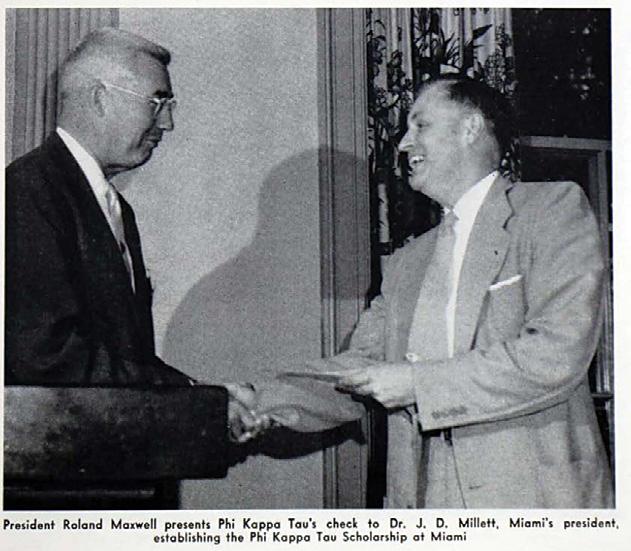
Phi Tau has always celebrated in style! On March 17, Phi Kappa Tau celebrated its 115th anniversary. Read the following excerpt from the 1956 edition of The Laurel shortly after Phi Kappa Tau celebrated its 50th anniversary.
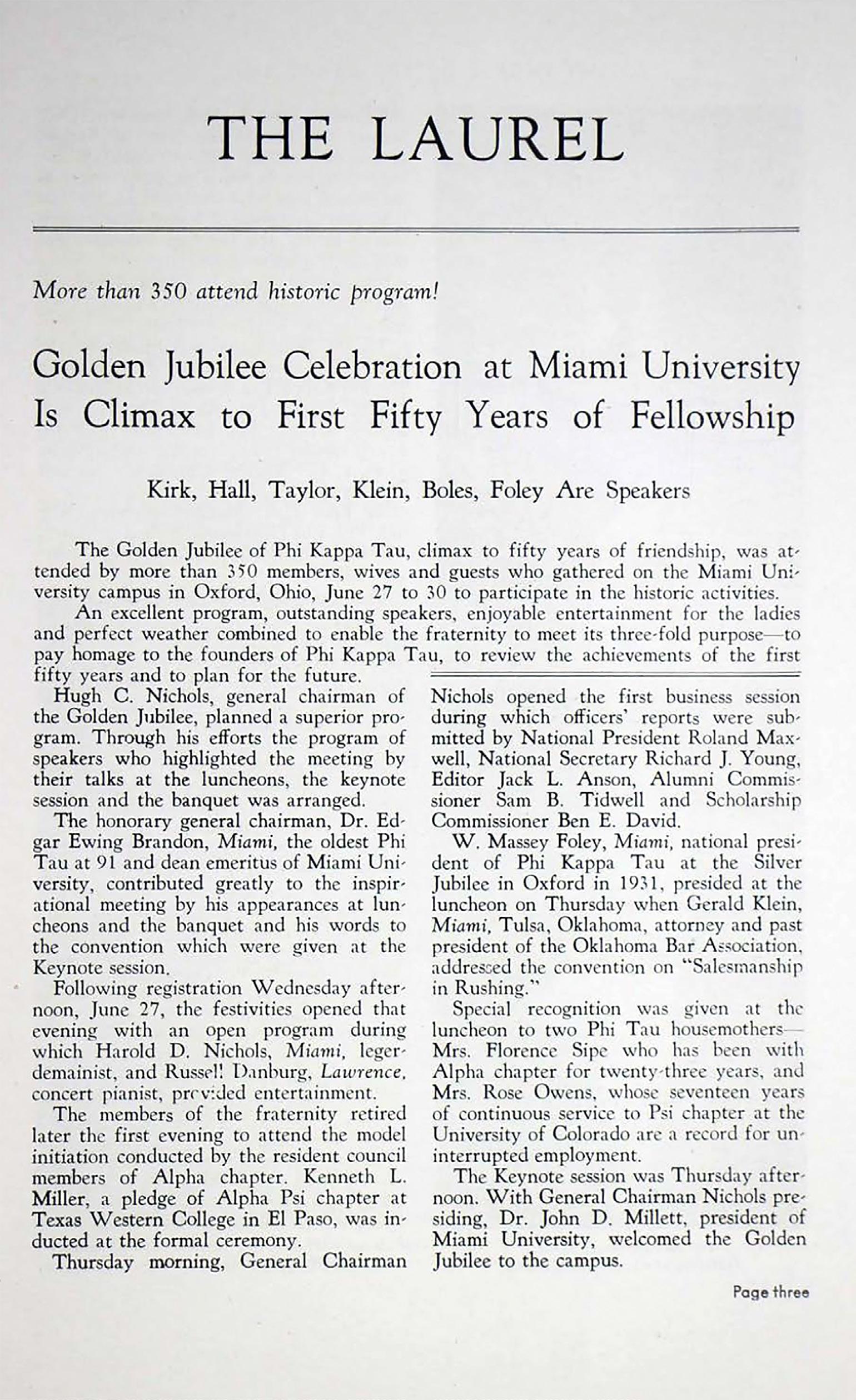
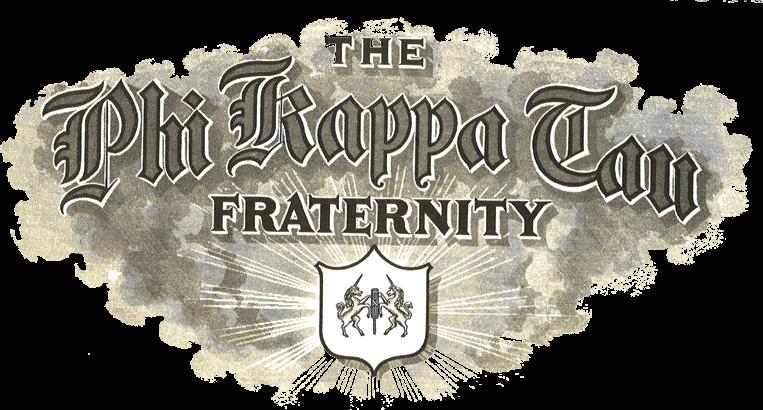
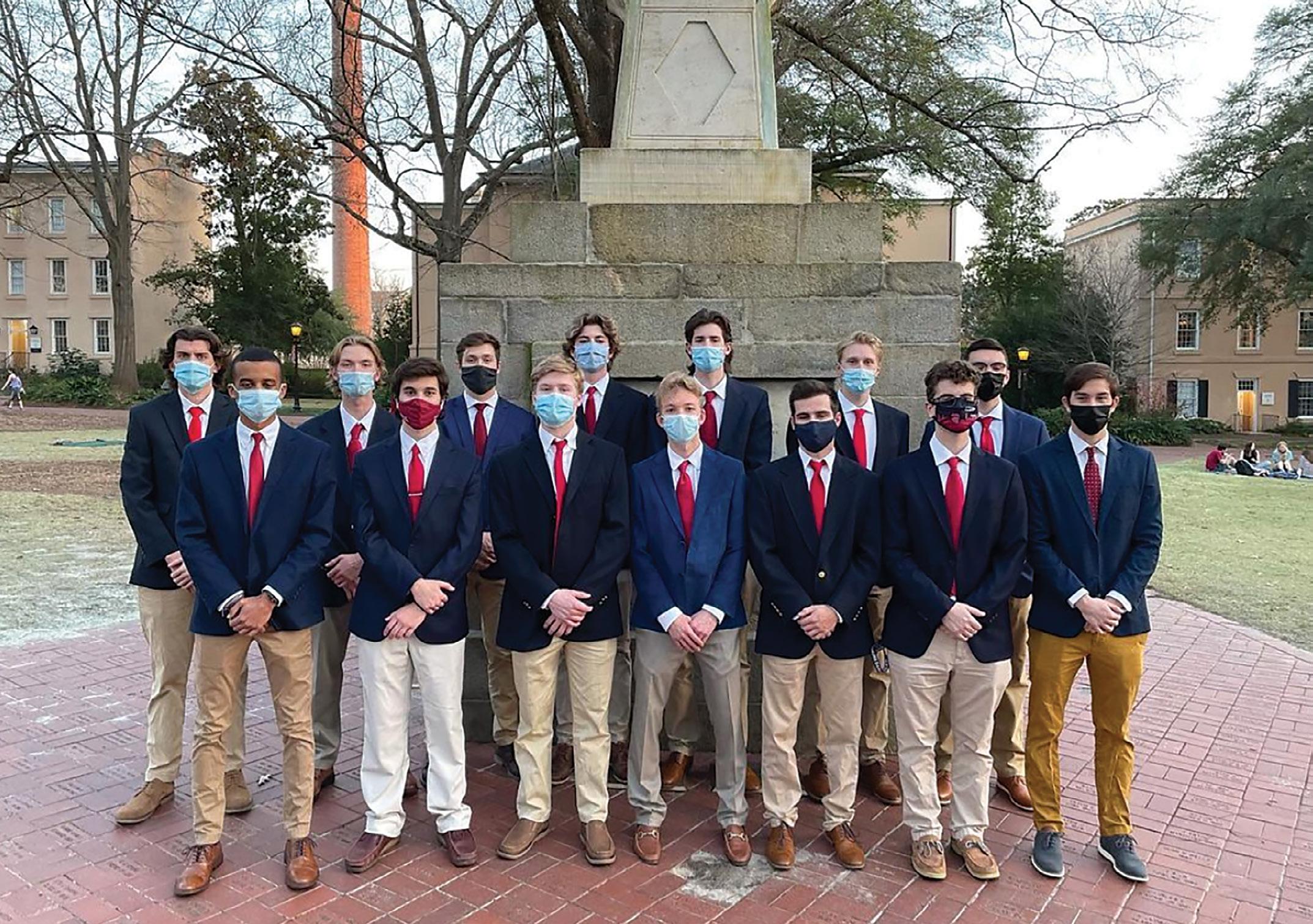
ZETA XI CHAPTER
UNIVERSITY OF SOUTH CAROLINA
Zeta Xi Chapter is the first fraternity to achieve University of South Carolina’s Annual Chapter Expectations (ACE) Program rating of “Exceeds Expectations with Distinction.”
The ACE program was developed to improve, grow, and evaluate the quality of fraternity and sorority chapters on campus. The program allows the Office of Fraternity and Sorority Life to evaluate chapter performance in relation to university expectations and compile data for potential new members. There are five possible distinctions from “Does Not Meet Expectations” to “Exceeds Expectations with Distinction.”
The program evaluates chapters in multiple areas of chapter operations and community improvement, as well as safety. The Zeta Xi chapter scored a 90% on the campus rating scale. At the time of evaluation, Zeta Xi Chapter boast 81 men with a 3.09 GPA and 252 service hours.
Zeta Xi was chartered in 2017. Congratulations to this young chapter!
ALEX KOEHLER

Upon graduating Alex Koehler, Mount Union ’06, began his career as a Recruiter for Phi Kappa Tau before serving as Director of Expansion. Since 2015, Koehler has worked for the American Red Cross. In 2018, he began his current role as Disaster Workforce Engagement Manger.
Koehler is a passionate humanitarian and, in addition to his work for the Red Cross, volunteers for Pelotonia – an annual cycling event that has raised over $218 million for cancer research since 2008.
• What does your role as Disaster
Workforce Engagement Manager entail? I work to ensure the American
Red Cross has the capacity to deliver on our life sustaining mission of
“Preventing and alleviating human suffering in the face of emergencies by mobilizing the power of volunteers…”
Koehler and crew in Florida following Hurricane Irma in 2007.
• What does the Disaster Workforce team do? We ensure that volunteers are brought into their positions efficiently, trained well, engaged in meaningful work, given opportunities for growth and development, and that we recognize and demonstrate our appreciation for their efforts. Simply put, we strive to facilitate extraordinary volunteer experiences. A specific example of our work is deployment of volunteers to Red Cross disaster relief operations.
During my time in this position, we’ve deployed over 1500 disaster responders to different operations across the United States and its territories.
• What draws you towards humanitarian work? After my grandfather passed away in 2005, there was a line out the door at his memorial service. I was stunned! He lived his entire life in one of those small, rural Ohio towns.
How had he made such an impact on so many people? I couldn’t understand it, but I knew in that moment I wanted to lead a life of such significance. It took me a while to realize that it was because he had led a life of service – in the Army, with the American Legion, Kiwanis, and even with his family and throughout his career. He lived to serve others and he inspired me to do the same.
• You have been at the Red Cross since 2015. What stands out to you most from your time? My first personal deployment to a disaster relief operation amid the tumultuous 2017 hurricane season (Hurricanes Harvey,
Irma, and Maria) stands out. The people you meet in the aftermath of a major incident can have a profound impact on you. The stories you hear and the things you see – it sticks with you! On a smaller scale, each time a volunteer shares an extraordinary experience with you, you remember why you’re doing what you do.
• How does humanitarian work tie to your experience as a Phi Tau?
I’m a mission driven person. When our mission talks about “brotherhood”, of course it’s referring to our brotherhood in Phi Kappa Tau, but it’s also referring to the universal brotherhood
of man. When it talks about “ethical leadership”, well, leadership is service. Humanitarianism is fundamental to the mission of Phi Tau. Our Fraternity was my first true platform to work in service to others, and it has led me to many other organizations since then.
• What does “being your brother’s keeper” mean to you? Many people and organizations talk about “the
Parable of the Good Samaritan.”
The often-overlooked aspect of the parable is that the Samaritan was the least likely to do what he did. Yet he did it because, as he says, he “must”.
I believe he meant “If I didn’t, who would? What kind of world would we live in if I didn’t?” He did what he did because it was fundamental to his being. Since the beginning of the
COVID-19 pandemic, there has been an increase in terminology such as
“We’re all in this together.” Still true, but that’s been true since the dawn of time. Even in bumper to bumper, rush hour traffic. The guy laying on the horn behind you? Guess what. You’re in it together. Right now, each of us are navigating this thing called life – and we’re doing it together. The world sure would be a better place if we looked out for one another more often.
• What is the most challenging aspect of getting people engaged with philanthropy and service?
Nobel Prize winner Herbert Simon is credited for coining the term “attention economy,” arguing that the economy is driven by the most valuable resource at that moment in time. I believe that there has never been a time when more people have been more passionate about making a genuine difference in the world. I also believe there has never been a time when there are so many organizations and purposes to choose from, AND so many other competing demands, priorities, and distractions. I get it. I’m a young professional and a new parent. Time and energy are precious. At the end of the day though, if you value something, you’ll find a way to devote time and attention to it.
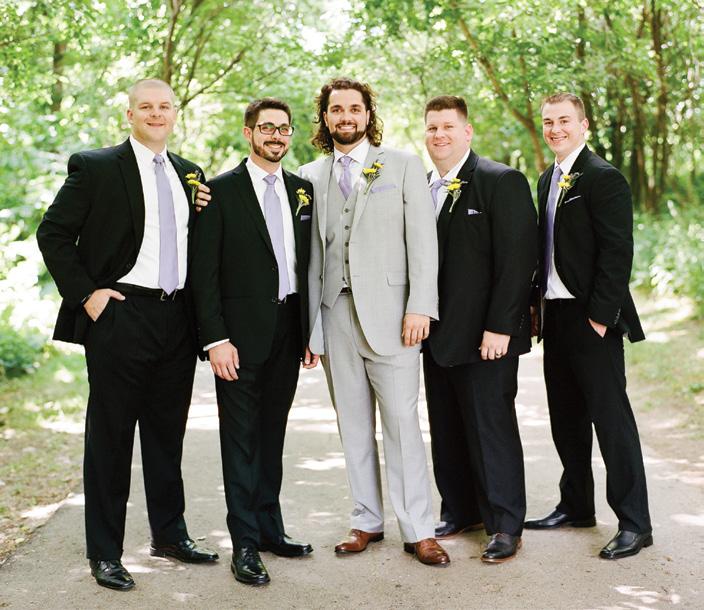
• What is your advice for undergraduate brothers who feel their chapter brothers are apathetic towards volunteering? Odds are they just need to find their “why.” I choose to invest my resources into organizations that do something I’m passionate about, and my guess is that they would too.
As leaders, spend some time digging to find what makes them tick. What are the three most significant moments thus far in their lives? Why do those moments stand out? Who are the two people who have had the biggest impact on them? Why? Seek out organizations with a mission that in some way aligns with those experiences or the people who have impacted them. For example, my involvement with Pelotonia is largely driven by my grandfather’s battle with cancer. Every time I start to question why I’m pushing my body so hard, I think about him, and it reminds me why I’m out there.
• What are some of your other volunteer passions? In addition to volunteering with Phi Kappa Tau, my wife and I continue to find ways to support SeriousFun, especially the nearby
Flying Horse Farms. For the past few years, Pelotonia has been my primary focus. All five men in my wedding (me + four groomsmen; three of whom are
Epsilon chapter brothers) have either lost a parent or a grandparent to cancer.
These are people I personally knew and loved. It drives me forward each time
I’m on the bike.

(Left to right) Alex and his groomsmen, Andrew Youtz, Mount Union ’06, his biological brother, Zach, Alex, AJ Meyer, Mount Union ’09, and Ryan Shannon, Mount Union ’06; Racing for Pelatonia (far right in gray and white)
PHI TAU “LAUNCHES” PROGRESS
In February, Phi Kappa Tau successfully wrapped Progress, a four-week virtual education series for undergraduate leaders and chapter advisors. Throughout Progress, participants set goals for themselves and increased their knowledge in areas like recruitment, chapter finances, alumni relations, and other valuable leadership skills. An entirely virtual program, Progress was focused on continuing undergraduate education while we are unable to meet in person.
Participants heard from the following speakers and facilitators:
WEEK 1: MISSION BRIEFING
Welcoming Session: National President Bill Brasch, Louisville ’67, and CEO Tim Hudson, Truman State ’97 Servant Leadership – Organizing Your Team: Steve Hartman, Muskingum ’87, and Mike Gabhart, Georgetown ’95 Advisor Panel Discussion: Stephen Rupprecht, Oswego ’91 You Need to Post @fraternitysocialmedia: Guillermo Flores, Southern Illinois ’08
Strategic Planning: John Mountz, Penn State ’90 Closing Session: Charlie Ball, Miami ’82
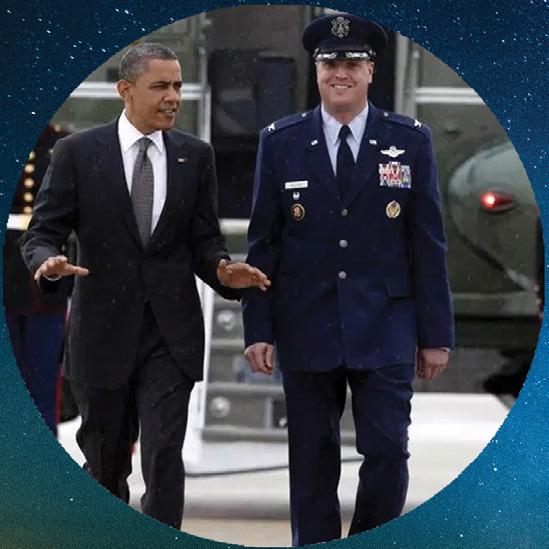
WEEK 2: FIRST CONTACT
Building Inclusive Leadership: Dr. David E. Jones Recruitment & Retention: Alex Koehler, Mount Union ’07, Alex Papke, Baldwin Wallace ’14, and Barry Mask, Auburn ’78 Philanthropy & Service: Matt Parker, Evansville ’93
Alumni Relations: Rob Reese,
Kent State ’87
An Hour of Power with
Dr. Lori Hart: Dr. Lori Hart
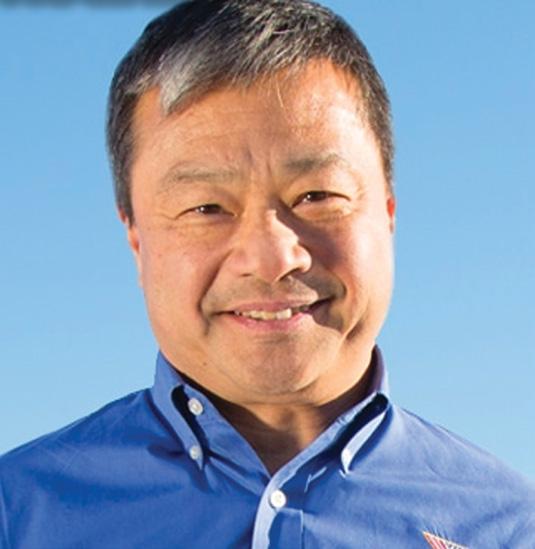
Leroy Chaio
WEEK 3: HOUSTON, WE HAVE A PROBLEM

Be the Man – A Movement for Healthy Masculinity:
Casey J. Cornelius Chapter Finances: National Councilor Michael Lummus, Belmont ’06
Working with your Campus FSA: Chad Warrick, Akron ’09 Risk Management Basics: Dr. Lori Hart & Megan Carlson
WEEK 4: TO INFINITY AND BEYOND
Ritual — A Way of Life:
Dave Lapinski, Penn State ’74
Breakout Goal Setting Officer Installation and
Closing Keynote: National President Bill Brash, Louisville ’67, and National Vice President Dale Holland, Kent State ’87
Dale Holland
Thank you to our speakers, as well as our Deans, our National Council, our National Education Advisor, and our Foundation Trustees for making this program happen. We hope all our participants learned something valuable they can take back to their campus. Go Far!
An Hour of Power with Dr. Lori Hart

MOST POPULAR
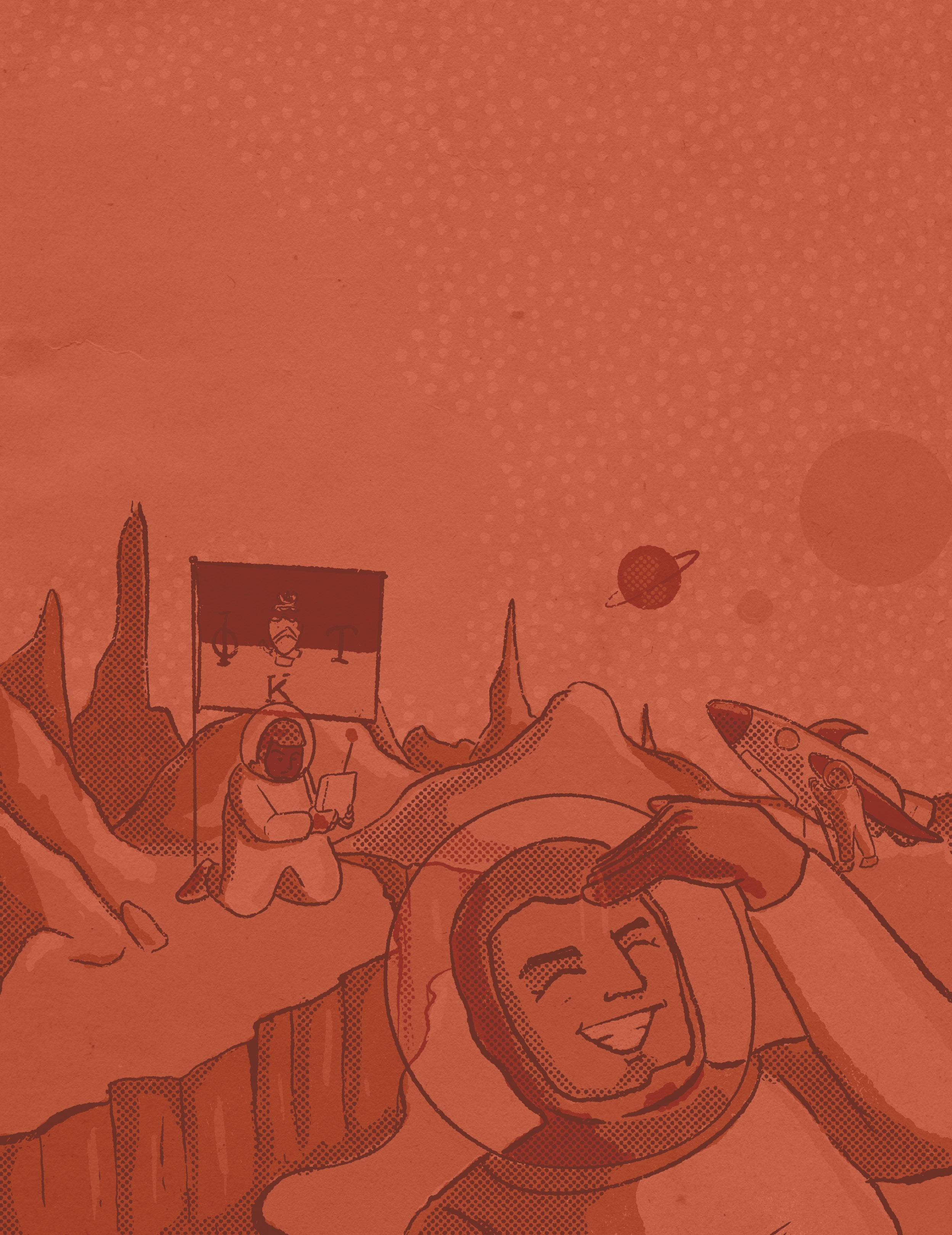
SESSION
100%
OF CHAPTERS
AND COLONIES
PARTICIPATED
458
PARTICIPANTS
20
SPEAKERS
15
TOTAL HOURS
OF CONTENT
by the numbers
5,608
PAGE VISITS
20
SMALL GROUP
FACILITATORS
Triumph &Tragedy

Last July, Jeremy Humphrey, Kent State ’98, woke in the middle of the night to tumultuous thunderstorms outside his window. Waiting for the storm to pass, his wife checked Facebook and discovered a woman had gone missing in the nearby wilderness. Drawn to the obligation to help someone in need, Humphrey set out on foot to run the forest until he found the woman and her dog. The victim’s name will not be used to respect her privacy.

BY LILLY STEGER


